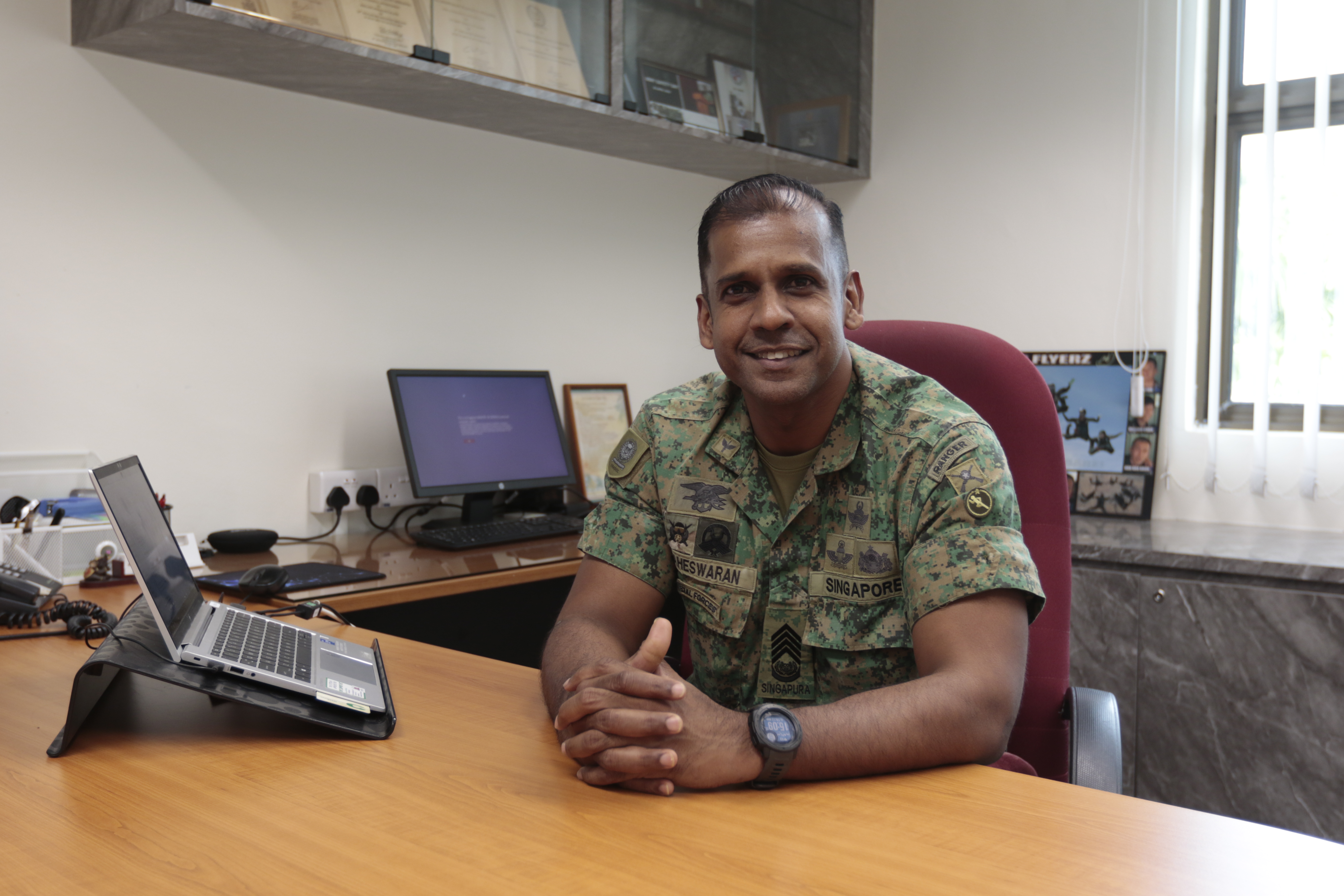
 Web Content Viewer
Web Content Viewer

This week, we speak to Chief Warrant Officer (CWO) Maheswaran Franklin Miranda, Sergeant Major (SM) of Training and Doctrine Command (TRADOC), to understand more on what he does in TRADOC.
What are your key responsibilities as the SM TRADOC?
TRADOC develops doctrine and establishes training standards to ensure an operationally-ready Army. As the SM TRADOC, I look after four training-related domains. The first is on maintaining training systems integrity; I ensure that all training systems remain consistent, effective, and aligned with our Army’s objectives and outcomes. Next, I look after the development of Warrant Officers and Specialists (WOSpecs), to equip them with the necessary skillsets to fulfil operational needs and leadership requirements. Thirdly, I lead the Soldier Fundamental (SOFUN) team, to oversee and support the implementation and continuous improvement to the SOFUN framework within training programs. Lastly, I work on establishing and maintaining standardised Tactics, Techniques, and Procedures (TTP) across the Army to enhance operational efficiency and effectiveness.
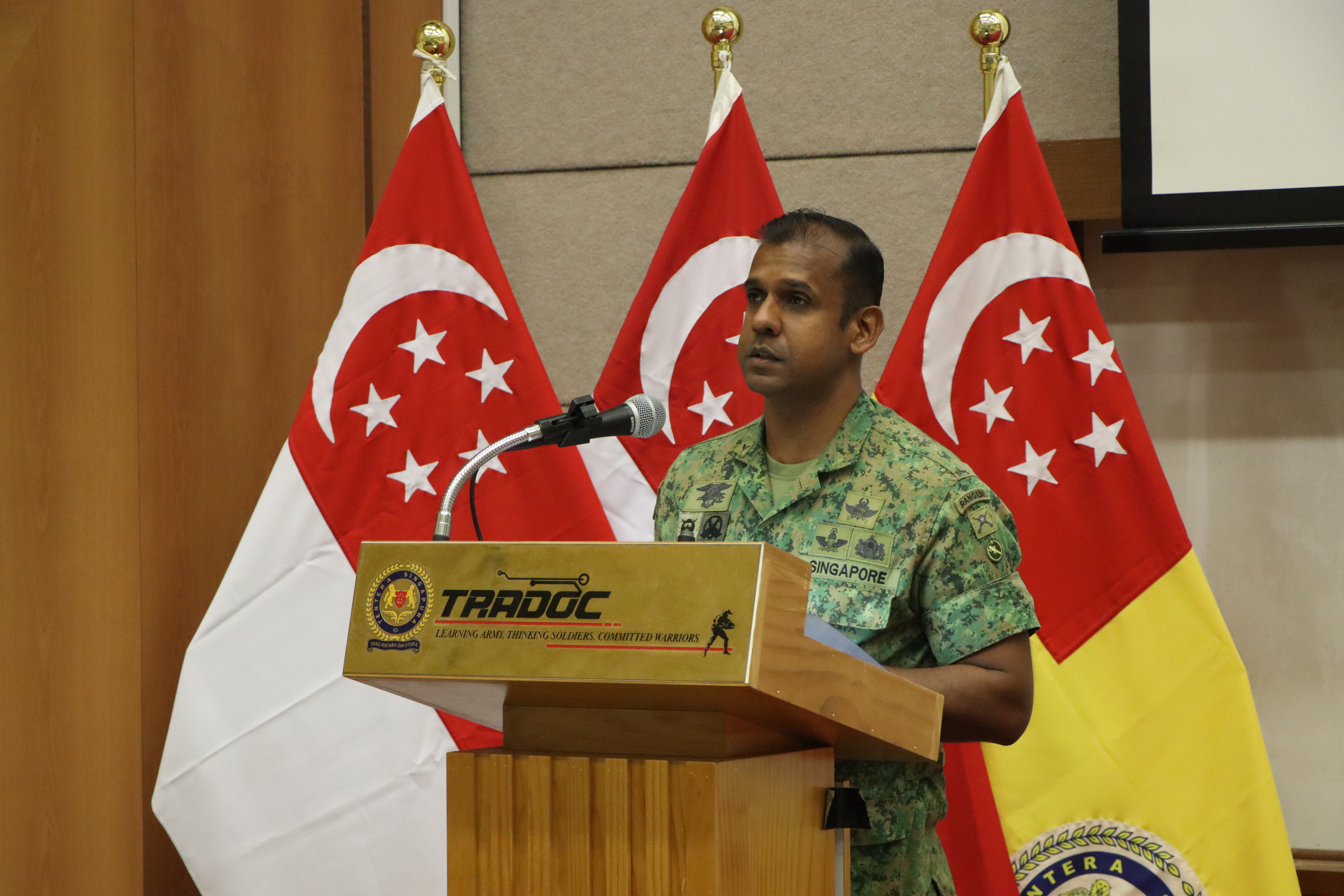
Then-Senior Warrant Officer (SWO) Maheswaran, delivering the closing address at the the Army WOSpec Operations Staff Course 2023.
What are some of the key takeaways as SM TRADOC?
The first is on the need to have a strong sense of adaptability. Staying flexible and responsive to changes in technology and operational needs is essential for doctrine development and effective training. On training, we need to ensure that our soldiers are developed holistically, and this includes their physical fitness and mental resilience, in addition to their soldering competencies. Using science-based training, leveraging on technology and data also helps in delivering more targeted and impactful results. Lastly, being a good leader and mentor to our soldiers go a long way in building a strong Army and to me, seeing our Army grow from strength to strength is extremely fulfilling.
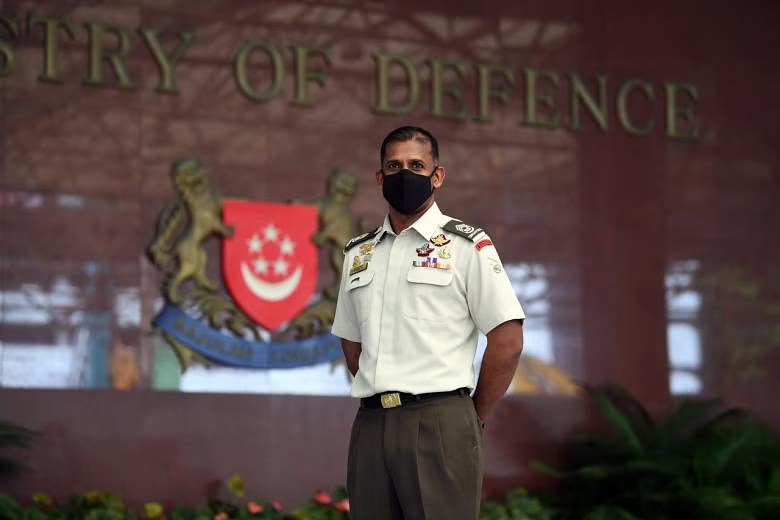
Then-Master Warrant Officer (MWO) Maheswaran during the 2020 MINDEF/SAF Promotion Ceremony.
How did your prior experiences help you in your current appointment?
I shall highlight three of my previous appointments. Firstly, I was formerly the Head of Training & Audit in SM TRADOC’s Office. In that role, I was responsible for auditing trainers to ensure they are qualified, current, and compliant with training policies. This appointment has honed my skills in maintaining training standards, which directly translates into my current responsibility of ensuring the integrity of our training systems in TRADOC. Secondly, as a former Division Sergeant Major of the 3rd Singapore Division, I have seen for myself the importance of having a standardised set of TTPs across units undertaking a common mission. Insights gained from the tour also comes in handy as I now oversee TTPs standardization efforts Army-wide. Lastly, as a former Commanding Officer (CO) of the Specialist and Warrant Officers Advanced School, I had an in-depth understanding on the training needs of our WOSpecs. In my current role as SM TRADOC, I continue to ensure that our WOSpecs are well trained and equipped with the necessary skillsets to perform their duties effectively and efficiently. Each of these appointments has provided valuable lessons in upholding standards, enhancing operational effectiveness, and developing future leaders – skills that are central to my work today in fulfilling TRADOC’s mission.
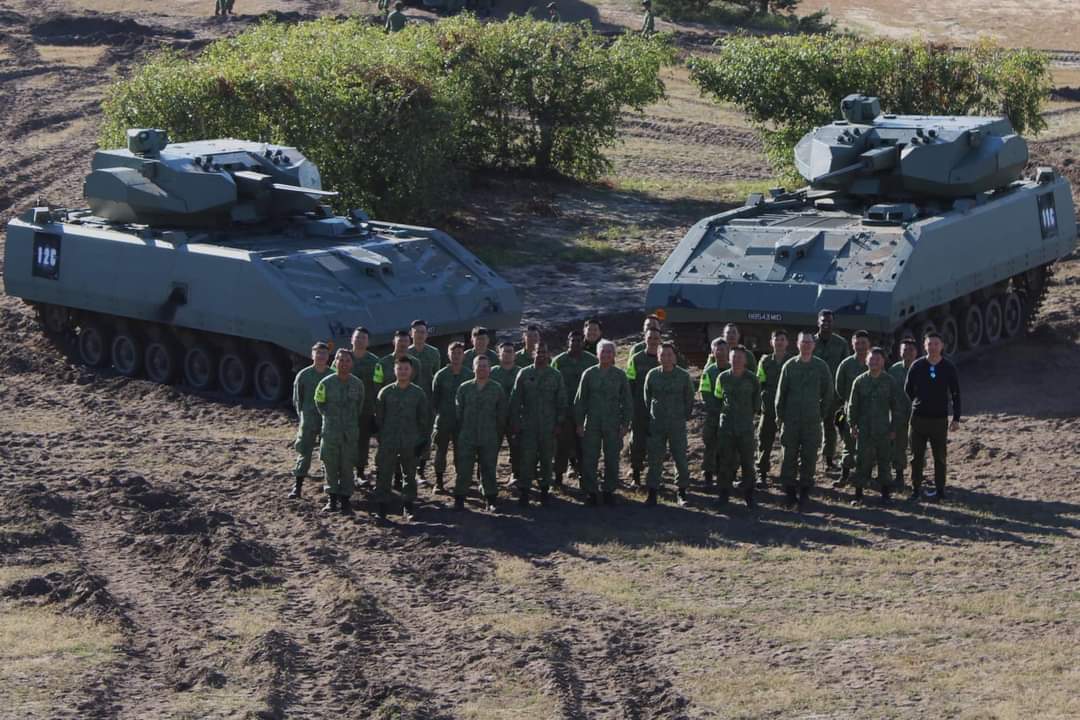
Then-SWO Maheswaran (4th from left) at a visit to School of Armour, Armour Training Institute (ATI) during Exercise Panzer Strike (XPS) 23.
How do you think we can improve our training and development of our soldiers?
Today’s generation of soldiers are more tech-savvy, adaptive, and quick to learn. This requires us to adapt our training approaches to leverage technology in creating engaging and relevant training content. We will also continue to leverage technology and science-based training, which will lead to better training outcomes. Through realistic training, we will train our commanders to think critically and respond effectively in complex situations. Instilling military discipline, coupled with fitness and resilience training remain cardinal, for us to have physically and mentally strong soldiers to take on the demands of our Army operations. We also continue to foster a culture where soldiers actively seek improvement through self-learning, feedback, and after-action reviews.
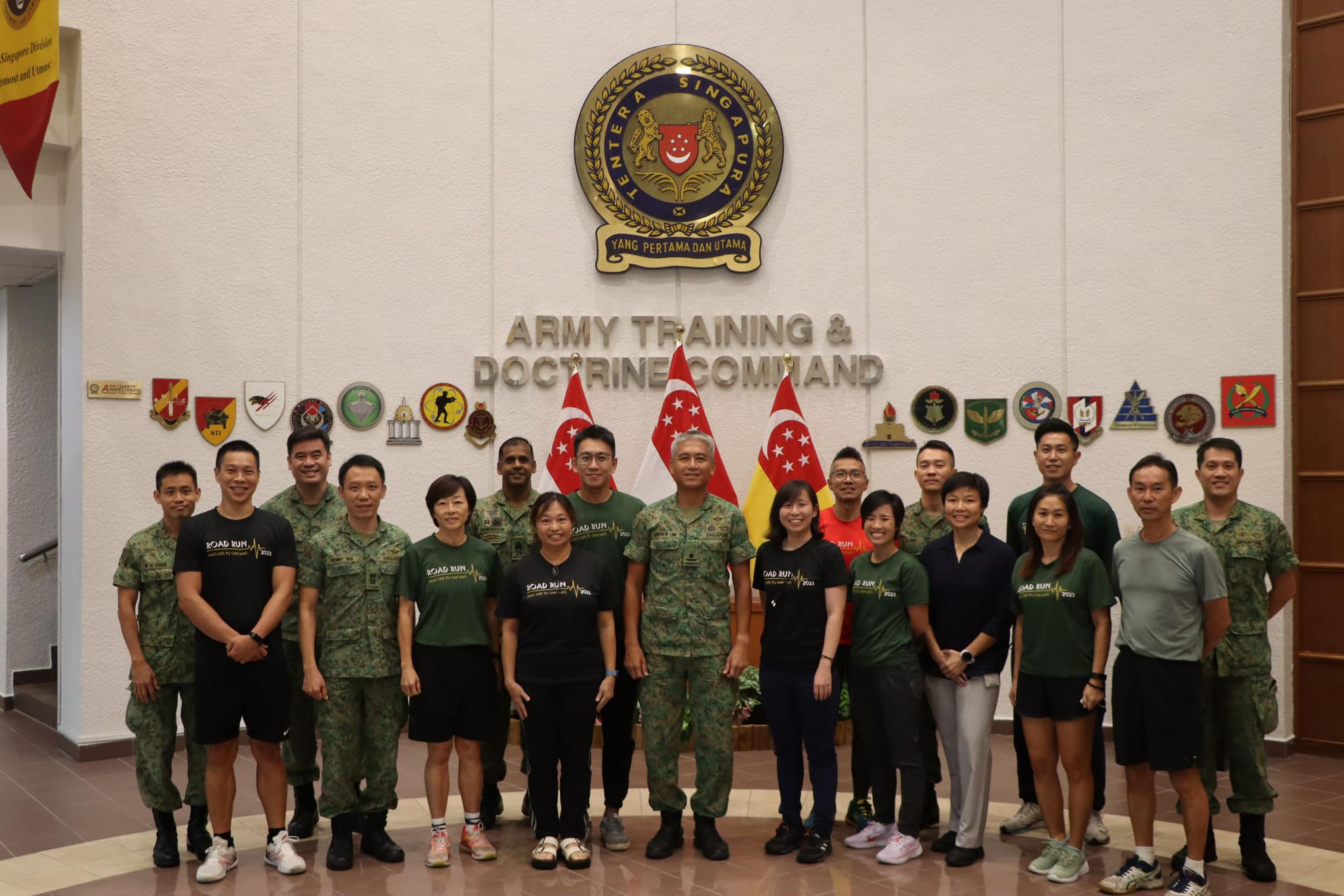
Earlier this year, TRADOC hosted Physical Education teachers from Temasek Junior College, as part of their learning journey, exchanging ideas and best practices on resilience building, science-based training approaches and safety education to better prepare future generations of soldiers.
How does our Army leverage technology in training?
Our Army has progressively integrated advanced technologies to enhance the training and development of our soldiers, leading to better training outcomes. I shall highlight a few examples for illustration. Firstly, we leverage technology to create realistic training scenarios, allowing soldiers to practice their TTPs and decision-making in a virtual environment that mirrors real-world conditions. Secondly, to optimise our soldiers’ learning process, we have introduced smart and adaptive learning platforms, which provide personalised, self-paced learning experiences, adapting training content based on individual progress and needs. Next, we leverage data analytics and Artificial Intelligence to track and assess soldier performance, offering targeted feedback and identifying areas for improvement. Lastly, we offer a range of e-learning modules and online resources that enable soldiers to access training materials and refresh their knowledge at their convenience. These technological advancements not only make training more efficient and effective but also ensure that our soldiers remain adaptable and prepared for the challenges of modern warfare.
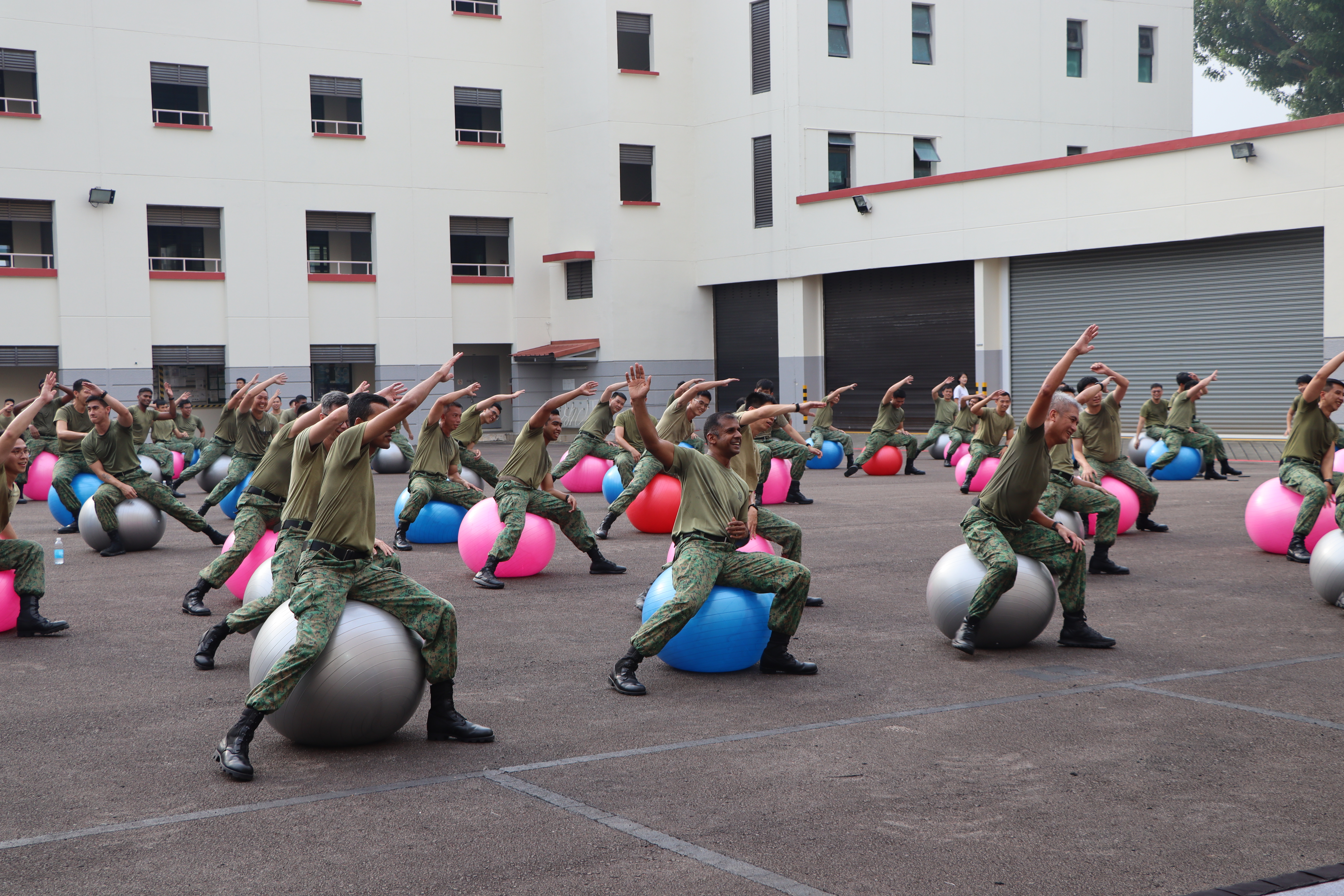
Then-SWO Maheswaran (centre) during an exercise as part of the Training Hub Workplan Seminar 2023.
What makes your job #AnythingButRegular?
My role as SM TRADOC comes with diverse responsibilities, which includes managing various aspects of training and doctrine, from system integrity to TTPs standardization. What I do also shape the effectiveness and preparedness of our soldiers, directly influencing our Army’s readiness and operational success. The constant need to integrate new technologies and address evolving needs also makes my job a challenging one, requiring me to always be flexible and adaptable. Shaping and guiding the next generation of leaders, as well as being able to contribute to the development of Army doctrine and policies, adds a fulfilling and impactful dimension to the job. All these make my job in TRADOC a truly #AnythingButRegular one!
